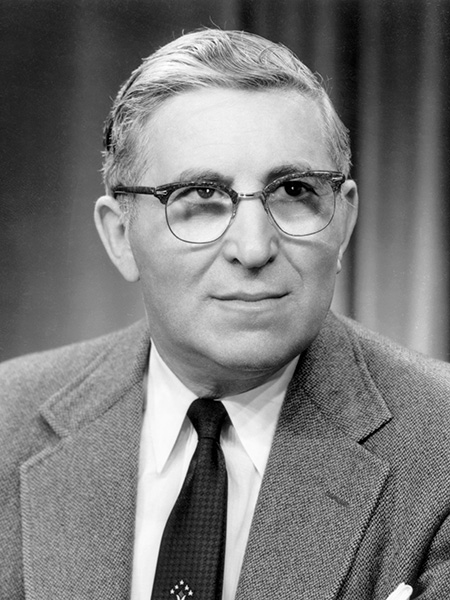Engineering pioneer at Purdue and Harvard

Maurice J. Zucrow made history as the first student to receive a PhD from Purdue’s College of Engineering, completing his dissertation in mechanical engineering in 1928. Six years earlier, he had achieved another milestone when he became the first to graduate with a bachelor's degree in engineering from Harvard University. Following his time at Purdue, Zucrow devoted 17 years to industry, contributing to such projects as the nation's inaugural gas turbine engine research and development at Elliott Company, as well as assisting in development of AeroJet's JATO rocket. In 1946, Zucrow moved to academia, joining the faculty of Purdue’s School of Aeronautics and Astronautics, where he stayed until his retirement in 1966. In 1948, he authored Principles of Jet Propulsion and Gas Turbines, the pioneering textbook in this field. Concurrently, Purdue established its first Rocket Propulsion Laboratory to support Zucrow's research. Subsequently, the Combustion Laboratory was erected in 1952 to accommodate Zucrow, his team, and their graduate students. The Gas Turbine Laboratory followed in 1954. In 1965, the High-Pressure Rocket Research Laboratory was added, culminating Zucrow's career as he retired a year later. Today, the renamed Maurice J. Zucrow Laboratories is the largest academic propulsion lab in the world. Zucrow’s recognition included election to the board of directors of the American Rocket Society in 1957, a Distinguished Civilian Service Award from the Department of the Army in 1967, and an honorary doctorate from Purdue in 1970.
